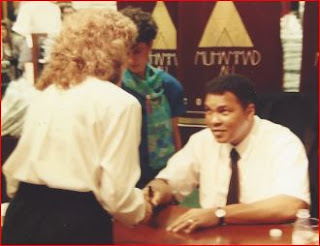It wasn’t that long ago that everybody started saying, “You
need to write a book!” But surveys continue to report that while 80% of us admit
that we’d like to write a book, only 2 or 3 of us do.
I understand. Writing a book takes work. But I also know
that we all have something valuable to share. There are people who need your
knowledge, wisdom, expertise, and ideas to help them improve the quality of
their lives. So, if you’re still on the fence about writing your book, here are 5 additional ways your book can help you expand your reach and help even more people than you ever
dreamed of.
Turn your content into a workshop or seminar: People love this format! If they didn’t, PBS
wouldn’t use it as one of their go-to fundraising strategies. The great thing about workshops and seminars is that you already know the content. All that’s required is
for you to figure out how much content you can cover in the allotted amount of time.
Turning your book into an online course (or courses): Online learning is a growing industry that
makes perfect sense. How are we supposed to continue to grow and evolve as
human beings beyond school if we don’t have access to opportunities to grow and
evolve? As an expert, you’ve already done the hard part of pulling all your
content together. With online learning, you break down your material into bite-sized
chunks of meaningful content people can access according to their own schedule.
Building your email list: The research is in, and it’s proving that email is still the best way to
build relationships that lead to sales. I know how “markety” that sounds, but if
you don’t tell them about your stuff, they won’t know it exists. And you have
to remember what you’re selling. Initially it might just be your book, but as
you expand the ways you utilize the content of your book, you’re also expanding
the reach of your expertise, and all the ideas, knowledge, and information people
can use to improve the quality of their lives!
Speaking about your book: You just never know whose life you’re going to change, but the more you
do to promote your book (courses, workshops, seminars, etc.) the more likely you
are to meet people whose lives you will influence for the better. You don’t
have to start big either. Build your confidence up by starting locally first.
Take advantage of the internet: In some ways, the internet is still a bit like the Wild West—there are a lot
of opportunities for people willing to do a little mining. You probably already
know people who host webinars, are podcasting, and/or have active blogs. In
reality, they need you as much as you need them. They need interesting people/experts
to introduce to their audience, and you need someone to help you get your
message online.
Obviously, each of these avenues takes work, but you don’t have to
do them all at once. Pick one and see it through. Once it’s in place, pick
another one. And remember, it’s not like you have to create new content each time. Your
content is all in your first book!
What’s truly amazing about zeroing in on specific opportunities
is that you’re very likely going to figure out what your next book (or course or
webinar or whatever) will be about along the way. And, as always, I’d be happy
to have a conversation with you about all the possibilities.









 i
i
